History
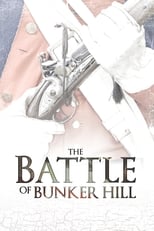
The Battle of Bunker Hill
January 1, 2009
On the morning of June 17, 1775 Colonial Patriots await a battle in the heights above Boston Harbor. Approaching are the English Redcoats, the most feared fighting force in the world. Low on water and ammunition, the ragged band of farmers-turned-militiamen face a daunting task. Can they protect the freedom of a new nation?
Shipwrecks of North America
January 1, 2009
Covers major shipwrecks in North America during the 20th century: the Titanic disaster in the Atlantic, the tragic sinking of the Andrea Doria, the loss of the Edmund Fitzgerald and the fatal capsizing of the Eastland in the Chicago River, and the collision of the San Juan of the California coast. Includes expert interviews, actual footage and rare photographs.
Samuari
January 1, 2009
A history of the Samuari.
Missouri's Civil War Tour
January 1, 2009
Highlights Civil War locations throughout the state of Missouri, which endured more battles and engagements than any state except Virginia and Tennessee. Uses historical reenactments and visits 36 sites, including: Wilson's Creek battlefield; the Jesse James farm in Kearney; the Old Courthouse in St. Louis, site of the Dred Scott trial; Hannibal, birthplace of Mark Twain; Arabia Steamboat Museum in Kansas City.
Love and Valor
January 1, 2009
Narrated by Tony Award winning actor Brian Dennehy, a tremendously moving story of a Union soldier and his wife during the Civil War. Based on the book by the same name, the film follows the story of Jacob Ritner, a Union captain from Iowa, and his wife, Emeline.
Lost and Found: The Legacy of USS Lagarto
January 1, 2009
Embark on an expedition of discovery as divers searcha remote area of the Gulf of Thailand for Lagarto's final resting place. Join CDR Frank Latta and the crew from Lagarto's construction and commissioning in Manitowoc, Wisconsin, to the final encounter with the Japanese minelayer Hatsutaka. Hear the personal stories of CDR Latta and the brave men of USS Lagarto-- and the families, parents, wives, and sons and daughters they left behind.

Desert Triumph: The Complete Story of Operation Desert Storm
January 1, 2009
CBS News footage is used to chronicle the events of the 1991 war between United Nations allies and Iraq, from Saddam Hussein's invasion of Kuwait on August 2, 1990 to its liberation six months later.
Illinois Terminal Railroad Company
January 1, 2009
Originally known as the Illinois Traction System, the Illinois Terminal Railroad was a significant provider of passenger and freight service for central Illinois, with Springfield as its hub. Now, with this fascinating collection of color and black and white films and photographs you can revisit the Illinois Terminal during the height of its career.
Gateway Arch and the Jefferson National Expansion Memorial
January 1, 2009
A cinematic tour of The Gateway Arch and the Jefferson National Expansion Memorial accompanied by instrumental music. Includes some on-screen interpretive text for identifying place names and providing historical information.
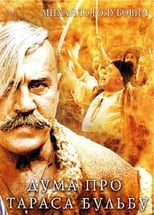
Thought about Taras Bulba
January 1, 2009
A screen adaptation of the famous work of N. Gogol with creative processing of the original text in the style of Ukrainization. The film shows the flavor of the Cossack era, reveals the psychological traits of the Cossacks. A budgetary answer to Bortko's film.

Blood of Two
January 1, 2009
The first collaboration between Matthew Barney & Elizabeth Peyton, Blood of Two is a unique, site-specific work that draws its references from Hydra itself – the surrounding environment, animals, humans, and local traditions are all part of the project in equal measure. Blood of Two centers on the former function of the Slaughterhouse and the customs of Hydra to establish connections between paganism and religion, ancient and modern, the ritualistic and familiar. As much as its conflicted terms strive for balance and fusion, it is Blood of Two’s greater resistance to these impulses, its failure to surrender unconditionally to them that ultimately counts, as a network of overlaps and crisscrosses.
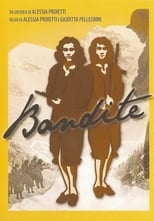
Bandite
January 1, 2009
Florence, cité secrète
January 1, 2009

Charbel: The Movie
January 1, 2009
Life of saint monk Charbel Makhluf
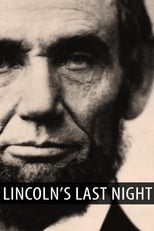
Lincoln's Last Night
January 1, 2009
Re-enactments augment this documentary that chronicles Lincoln's journey from his early years as a rising politician through his presidency, the Civil War and to his untimely death.

Erotic Nation
February 4, 2010
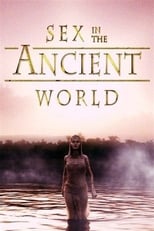
Sex in the Ancient World
January 1, 2009
In the beginning was sex. To the ancient cultures, sexuality, love and sex were inextricably connected with the creation of the earth, the heavens and the underworld. To the citizens of the ancient civilizations that gave birth to ours, sensuality and sexuality were an integral part of society. This series exploration of Egyptian and Roman sexual practice allows viewers the opportunity to see how attitudes and beliefs about sexuality functioned in the early civilizations, and how those attitudes reveal the unspoken rules that defined public and private behavior. Episodes cover human sex and sexuality from a historical perspective, and examines in detail different texts and images which provide us with evidence about sexual practices, beliefs and ideologies in the ancient world – from erotica on pots to legal texts, phallic votive objects, fertility ceremonies, prostitution, female and hermaphroditic creator deities, from religious rituals to sex manuals.

Rumination
January 1, 2009
An exploration of the Cultural Revolution that depicts both its chaotic later years – through the story of a squad of Red Army guards running amok in the countryside – and its continuing legacy in today’s China.
Napoli: City of the Damned
January 1, 2009
When thinking of devastated cities in the Second World War, Naples is often forgotten, but when it was liberated by the Allies it was on its last legs, with 200,000 homeless and no power, transport, food or running water. The Allies quickly brought food to the starving population and medicine to the sick, but the introduction of many troops and lots of supplies led to the creation of a huge black market involving almost the entire population. One third of women became prostitutes as Naples became a kind of Sodom and Gomorrah, a city of vice, crime and chaos where everything that could be sold and stolen was sold and stolen. Perplexingly, the Americans decided to introduce Italo-American criminals into positions of power in southern Italy, such as Vito Genovese, a gangster escaping a murder rap in New York. Genovese began setting up a crime empire in Naples - after Mussolini had effectively suppressed organised crime in Italy, the Allies brought it back. (Storyville)
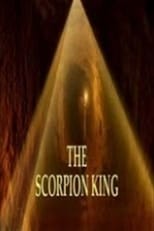
The Scorpion King
January 1, 2009
The Scorpion King: The King before Pharaohs. Learn more about the king who likely united ancient Egypt, organized the world’s earliest phonetic writing system, and inspired the creation of the pyramids. Mace heads, a stone mounted on a wooden shaft, were an early weapon of war. They were used like a club to strike enemies on the head. The scorpion mace head was too large to have been used as a weapon, and was clearly reserved for ceremonial purposes. Archaeologists believe they have found the tomb of the Scorpion King at the ancient burial site of Abydos. He was buried with 700 wine jars, several of which had come from as far away as ancient Palestine. The Scorpion King may have presided over the birth of phonetic writing earlier than any other civilization in the world—200 years before the first pharaohs.